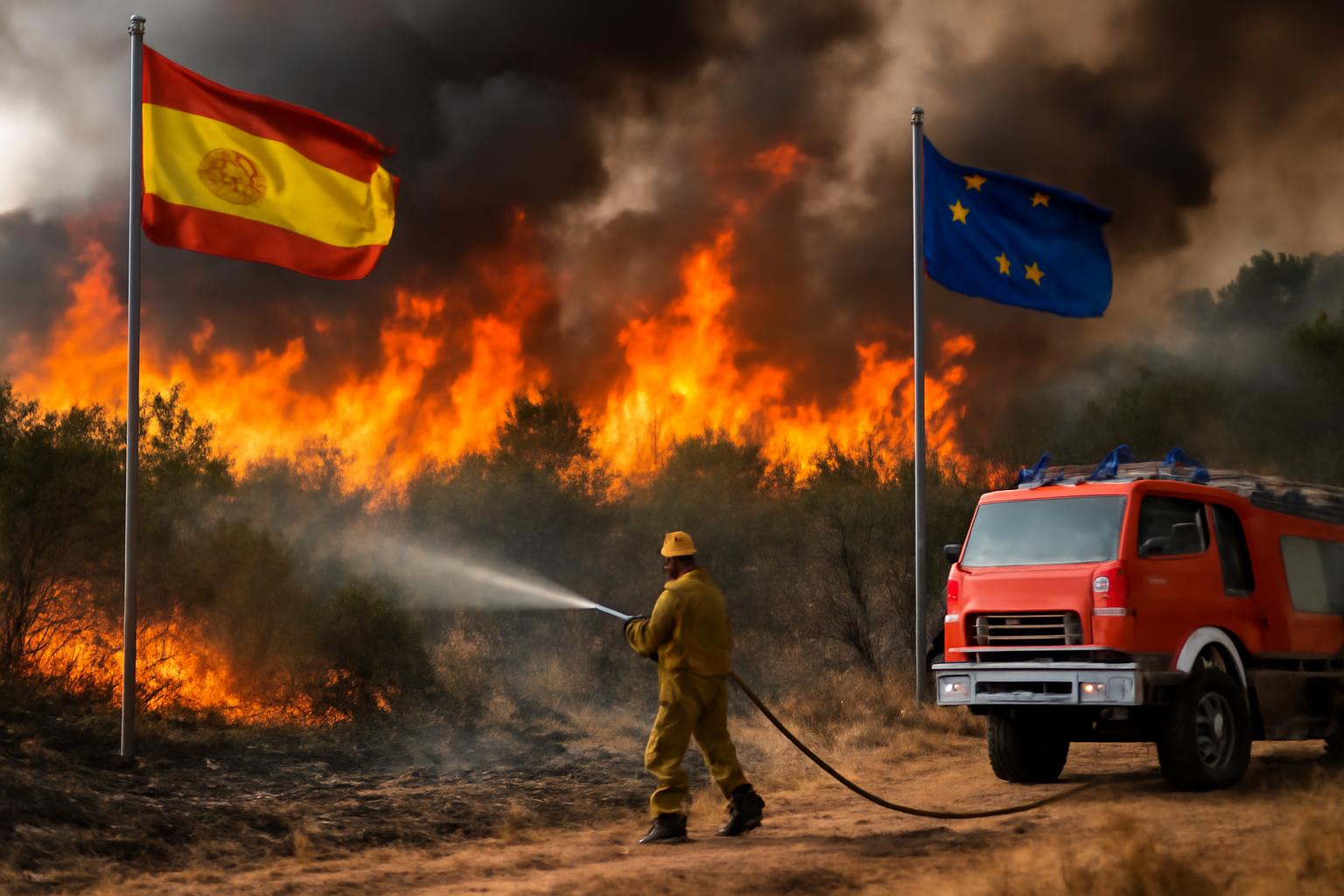Spain is grappling with a wildfire season of unusual ferocity. In a single day vast tracts—tens of thousands of hectares—burned, lifting the total for the year into the hundreds of thousands and bringing about evacuations, travel disruptions, and loss of life. Fires strike across several regions, with many sparked by human activity. International help has arrived from multiple countries, and the central government has called in additional troops to bolster regional responders. The danger remains high in the northwest and other areas, even as forecasters expect rain and cooler weather to temper the heat. The authorities report a string of arson investigations alongside the daunting task of relief and reconstruction. A prime minister ties the season to climate change, underscoring record wildfire CO2 emissions, while neighboring Portugal faces its own równie severe blaze situation. The episode fits into a broader pattern, with climate data adding to a narrative that politicians use to justify policy shifts.
These events lay bare the essence of a society organized not by a single mind but by a complex mosaic of local knowledge, institutions, and incentives. The scale and velocity of the fires expose the limits of any central plan to micromanage a national response; coordination succeeds only insofar as it respects the dispersed details known to local authorities, forest managers, and communities on the ground. When autonomous communities bear responsibility for prevention and response, the efficiency of their actions hinges on how well they can learn from adjacent regions, improvise with limited information, and align resources with local conditions. The swift mobilization of international aid is a reminder that cooperation and shared purpose can transcend borders, yet it is the day‑to‑day fabric of local governance and civil society—policing of arson, rapid evacuation, effective firefighting tactics—that ultimately bear most on resilience.
It is perilous to treat a single fire season as proof of a grand design in the climate of public policy. Forecasts and emissions tallies, however alarming, do not by themselves justify sweeping changes in the architecture of liberty or public administration. The obsession with climate narratives can eclipse the prudence of relying on tested institutions—the rule of law, honest accounting, and the everyday work of preventing and fighting fires through decentralized knowledge. To the extent policy leans on centralized coercion, it risks crowding out the very signals and incentives that make local experimentation possible. The real task lies in strengthening property rights, empowering local forest management, and ensuring that prevention is priced and funded at the level where information about risk is best known. A nation that wishes to endure such trials must cultivate a balance between national coordination and local initiative, between disciplined order and the freedom for communities to experiment, compare, and adapt. Only then can the shock of fire and fear be absorbed without betraying the institutions that preserve liberty in times of peril.
